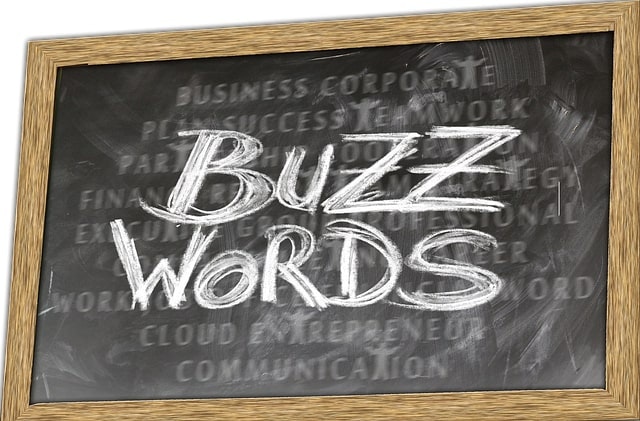Resume Buzzwords to Use and Tips to Avoid Clichés in 2024
All products and services featured are independently selected by WikiJob. When you register or purchase through links on this page, we may earn a commission.
Resumes can be tough and tedious to write, especially if you’re not used to selling yourself. They’re a space in which you have to tell potential employers how great you are and why you’re the best person for the job. Most of us are pretty uncomfortable doing that.
Resume buzzwords offer us an easy out here. These set words and phrases seem to tick all the boxes, telling the employer what they want to hear. The problem is that they’re often hollow and end up doing the opposite.
If not backed up by anything concrete, it can appear that your CV buzzwords are being used to mask incompetence. They tend to be words or phrases that anyone can say and for that reason, are seen as meaningless.
This article will act as a guide to help you write the best resume buzzwords you can by identifying and eliminating buzzwords that don't have any substance. If you know what resume clichés and buzzwords are, why we use them and how to avoid the worst offenders, your resume will be improved drastically.

What Are Resume Buzzwords?
The phrase ‘buzzword’ is often thrown around without much thought – ironically, like a buzzword.
A cynical way of describing a buzzword is as a term or phrase that's currently fashionable or deemed impressive but which rings a little hollow.
Ever heard a term that you hear all the time, but no one seems to know what it really means? That’s a buzzword.
A more generous way of thinking about resume buzzwords is as keywords. When reading an application, the employer will be looking for particular words and phrases, and sometimes these are considered buzzwords for a CV.
The truth is probably somewhere between the two. Some so-called buzzwords are popular because they’re useful and refer to something fundamental. Some are empty phrases that people throw around because they can’t quite put what they mean into more definite terms.
Why Are CV Buzzwords Important?
Simply put, people use resume buzzwords on resumes because they’re shortcuts. It’s not always wrong to use shortcuts – buzzwords for CV are fine when appropriate – but they are often employed when someone is struggling to put a particular trait into words.
And because they’re often short and catchy phrases, it can be tough to get them out of your head. For example, if you’re wondering how to describe your tendency to approach problems in a different way, the phrase ‘thinking outside the box’ may well come to mind.
Writing a CV is difficult. Resume buzzwords help us to skip over the tricky parts. They give us something to say without us needing to think too deeply about it.
And that’s why they’re a dangerous trap.
Common Resume Clichés: Examples of Resume Buzzwords to Avoid
The first thing to do is to be aware of what the resume clichés and bad buzzwords are. The ones which mean little to nothing and make employers groan when they read them for the thousandth time.
Here’s a shortlist of some of them, but the important thing is to learn why they’re clichés and bad buzzwords, so you can spot them anywhere and stop yourself from using them:
- Passionate
- Motivated
- Creative
- Focused
- Experienced
- Specialized
- Hard worker
- Expert
- Responsible
- Results-driven
- Team player
- Detail-oriented
Everyone these days is ‘passionate’ about things. ‘Passionate’ about delivering good customer service, about generating value for the company, about working with technology. Whatever the job requires, a candidate can say they’re ‘passionate’ about it.
Everyone also seems to be ‘motivated’ to do all of the above. Or they’re a ‘hard-working’, ‘results-driven’, ‘detail-oriented’, ‘creative thinker’ who is an excellent ‘team player’.
And that’s the main point here. Anyone can say it. It’s not something that can be easily proven.
But aren’t these good traits?
They are, and employers look for evidence of them. But writing that they apply to you does not make it so. The issue is that writing it is easy, proving it is harder.
It means nothing to say you’re ‘passionate’. Instead, show that through examples and experience. Let those speak to your passion, rather than saying it directly.
These resume clichés and bad buzzwords are all terms that could be used to describe something else, whether that be your experiences, your approach, your demeanor or whatever it is.
What that means is that the terms are empty without that something else. And if you have that something else – the years of experience, the projects that show your creativity, the references that speak to your motivation – then you don’t need the resume buzzword.
How to Avoid Resume Buzzwords: Top Tips
The best way to avoid these resume buzzwords is to let your results, actions and experiences speak for themselves.
The employer isn’t stupid. They will be able to see from your experience and other application materials that you are a ‘good team player’ or ‘passionate’ about something, etc. They don’t need you to tell them.
But it’s very easy to fall into the trap nonetheless. It’s tempting to just write ‘I am a great team player’ rather than figure out a way to prove it.
So, what steps can you take to avoid this? Here are a few tips to bear in mind:
Prepare With Family and Friends
Pretend you’re a particularly harsh and cynical interviewer. Or, even better, get a friend to play this role. Now re-read your resume and note down every part of it that seems vague, unsubstantiated or meaningless.
For example, if you’re reading your resume and you see a sentence that says, ‘I am a good team player’, then you would ask where the evidence for that is.
Be Specific With Your Word Use
As you go through your resume, make sure you’re being as specific as possible. Don’t say you were ‘responsible’ for a task, say what you actually did. Saying that you ‘managed’, ‘executed’ or ‘led a team’ leaves less room for ambiguity.
Don’t say you’re an ‘expert’ in a particular topic, instead, say what you have published or achieved and it’ll be obvious you’re an expert without you needing to say it.

Let Your Achievements and Experiences Speak for Themselves
A true expert doesn’t need to tell people they’re an expert. And this goes for many descriptive traits.
Use the Terms and Phrases the Employer Uses
Read the job description carefully. Highlight the terms and phrases that identify what they want from the ideal candidate. When writing your resume, make sure you use these, and describe how and why you fit each of them (or as many as you can).
Be Concrete
The problem with resume buzzwords is that anyone can wheel them out. You can tackle this problem by backing up each term you use with examples and explaining what you mean by them.
Essentially, the two things to keep in mind to avoid using bad resume buzzwords in your resume are to be specific and always to use concrete examples to back up your points.
Useful Resume Buzzwords
This might seem like an oxymoron, but a useful resume buzzword is really a keyword. Employers may be reading hundreds of resumes, so, naturally, each one won’t get a thorough overview.
Instead, employers will often scan for keywords. These are terms that relate to desirable traits, qualifications and achievements for the role and allow them to keep a mental (or sometimes even physical) list of how many of those each candidate ticks off.
This is where buzzwords come in handy. They make it easy for employers to scan your resume for the important points instead of having to decode them first. It’s not going to win you any creative writing awards, but that’s not really the point of your resume.
The best way to identify these good resume buzzwords is to take them from the job advert itself. Mirror the terms and phrases that they use for the traits and qualifications they want. In fact, these ‘good buzzwords’ might actually be some of the same words we saw in the ‘bad buzzwords’ section. The difference is mostly in how you use them.
For example, if a job advert states that the role demands a ‘team player’, then you should actually use that word. But, crucially, you should only use it directly before or after giving concrete examples.
Don’t use an abstract term without immediately backing it up, showing exactly what you mean by it.
Final Thoughts
The term ‘buzzword’ is a bit of a buzzword in itself. Even here, we can see that sometimes the same words can be both good and bad buzzwords, depending on how they’re used.
So, really, any word can be a buzzword – it’s more about how you use it.
If you’re using abstract terms to imply skills and experiences that might not necessarily exist, it’s a buzzword. It’s a word that sounds nice that you think employers want to hear.
If you’re using your terms accurately, explaining what you mean by them and backing up anything abstract with something concrete, then you’re not using buzzwords. You’re writing a good resume.






